36+ Sample Wedding Checklist Templates
-
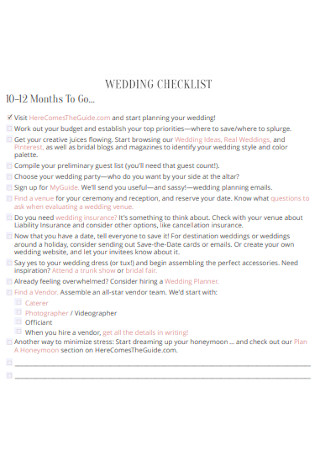
Sample Wedding Checklist Template
download now -
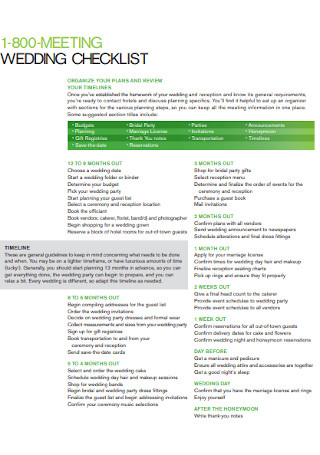
Wedding Meeting Checklist
download now -
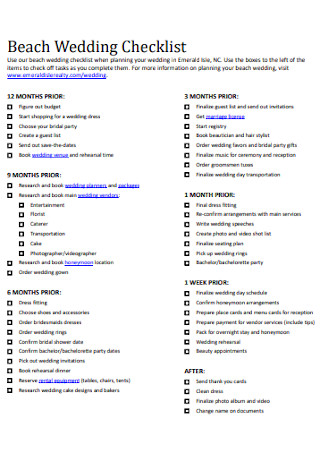
Beach Wedding Checklist
download now -
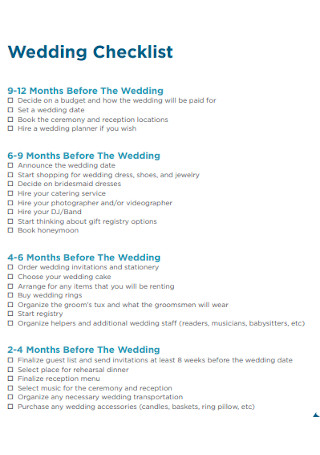
Wedding Checklist Format
download now -
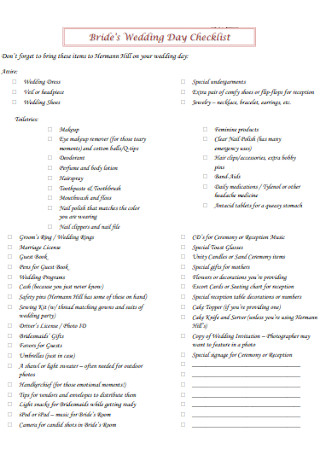
Wedding Day Checklist
download now -
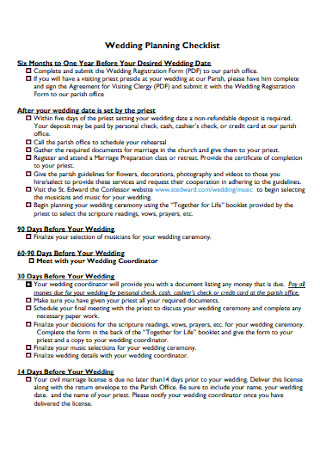
Wedding Planning Checklist Template
download now -
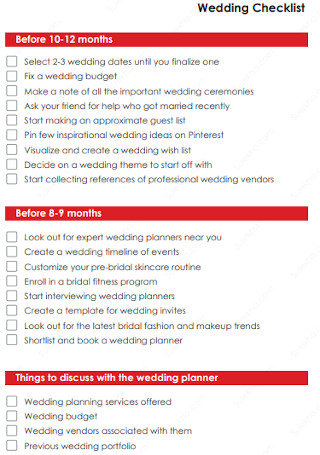
Simple Wedding Checklist Example
download now -
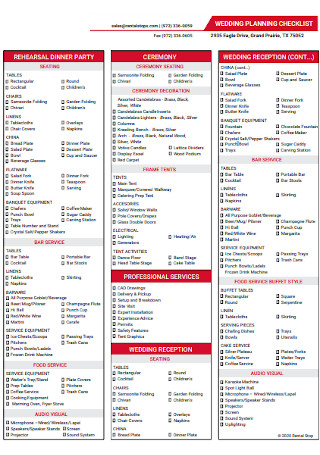
Wedding Party Planning Checklist
download now -
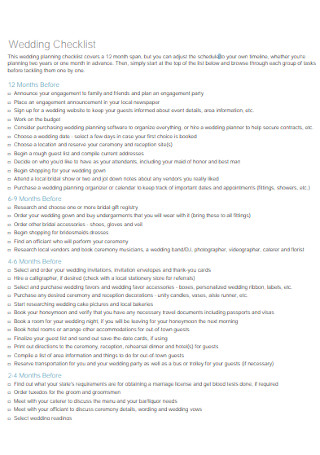
Printable Wedding Checklist Template
download now -
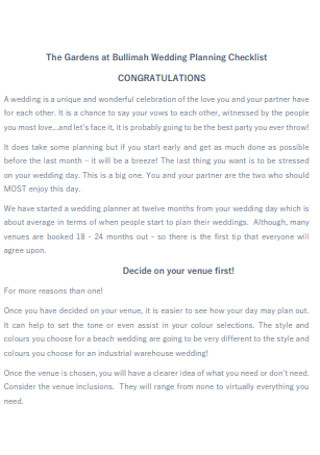
Wedding Gardens Checklist
download now -
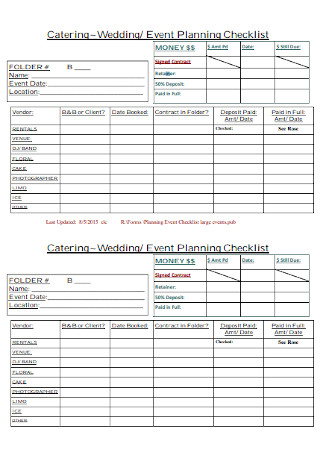
Wedding and Event Planning Checklist
download now -
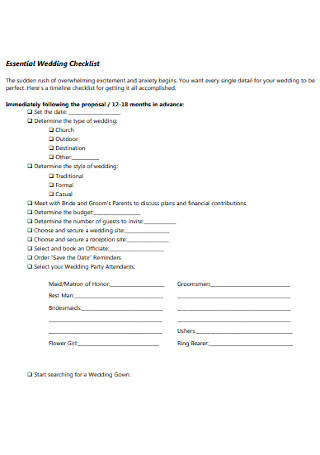
Essential Wedding Checklist
download now -
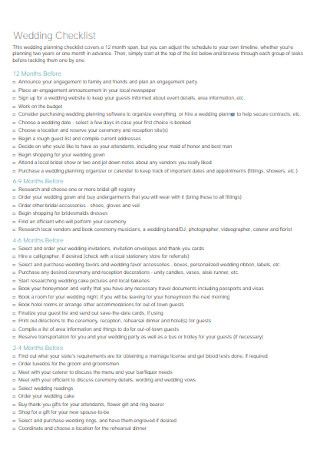
Basic Wedding Checklist Template
download now -
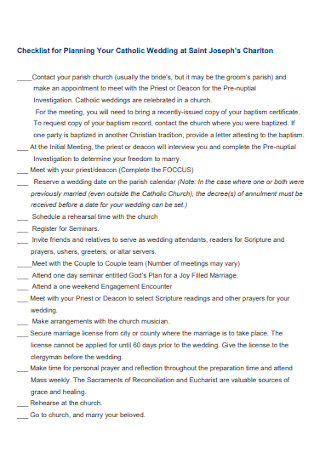
Checklist for Planning Your Wedding
download now -
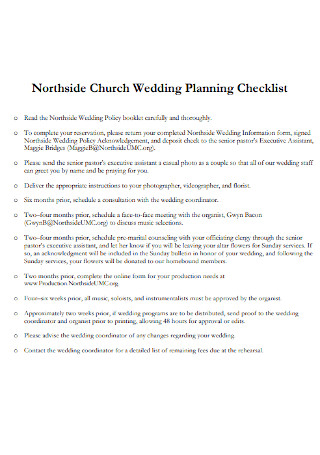
Church Wedding Checklist
download now -
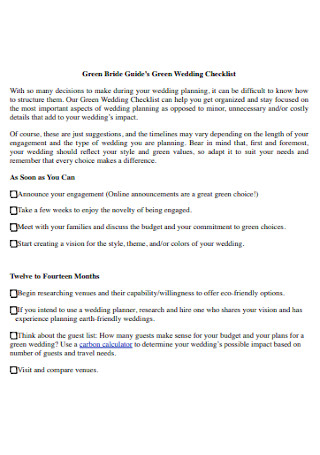
Green Wedding Planning Checklist
download now -
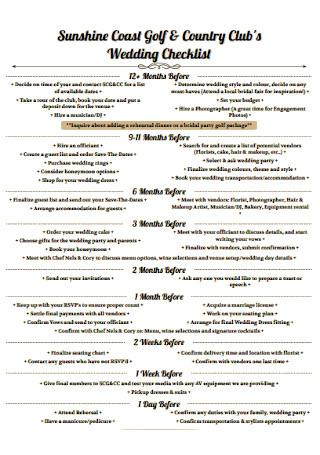
Clubs Wedding Checklist
download now -
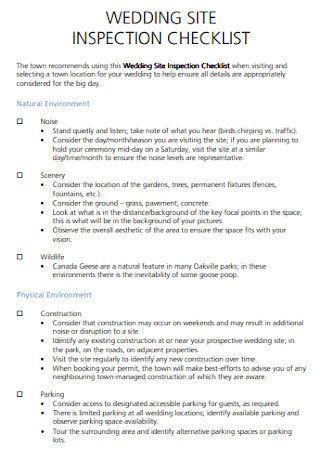
Wedding Site Inspection Checklist
download now -
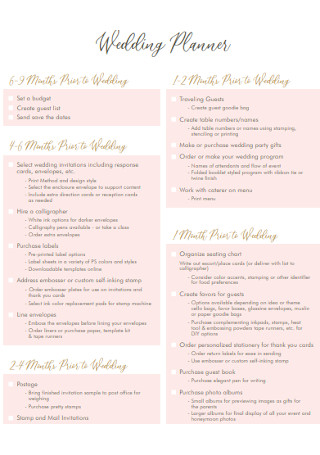
Wedding Planner Checklist
download now -
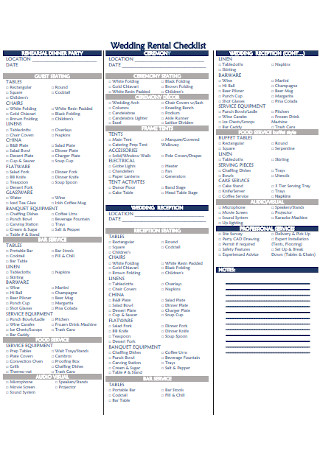
Wedding Rental Checklist Template
download now -
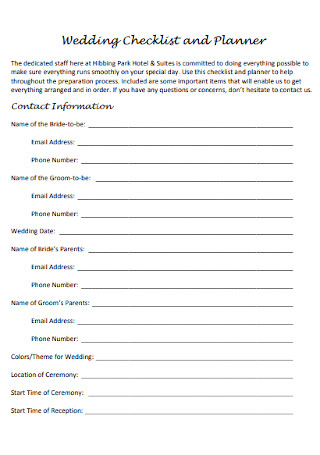
Wedding Checklist and Planner
download now -
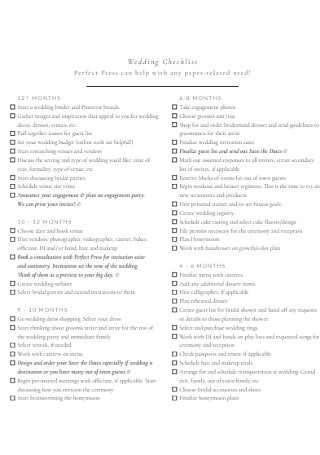
Wedding Invitation Checklist
download now -
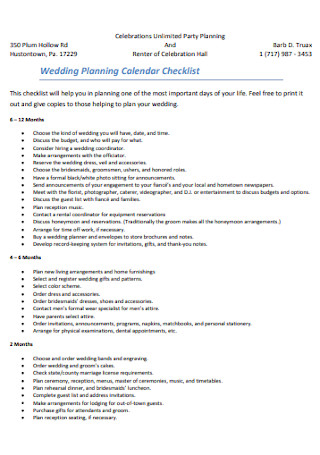
Wedding Planning Calendar Checklist
download now -
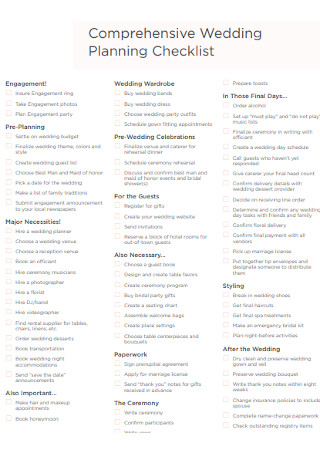
Comprehensive Wedding Planning Checklist
download now -
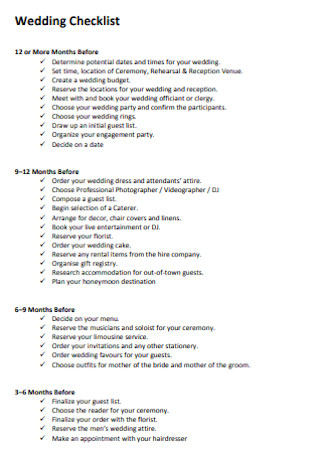
Formal Wedding Checklist Template
download now -
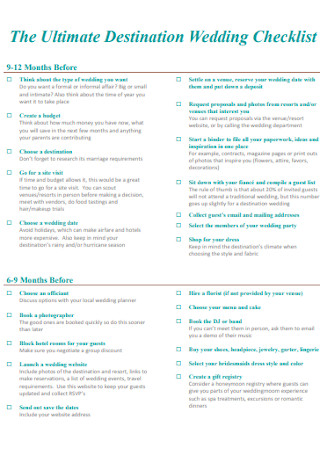
Ultimate Destination Wedding Checklist
download now -
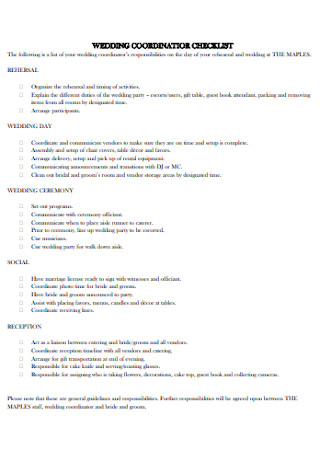
Wedding Coordinator Checklist
download now -
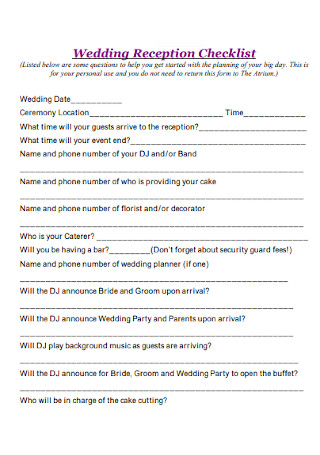
Wedding Reception Checklist Example
download now -
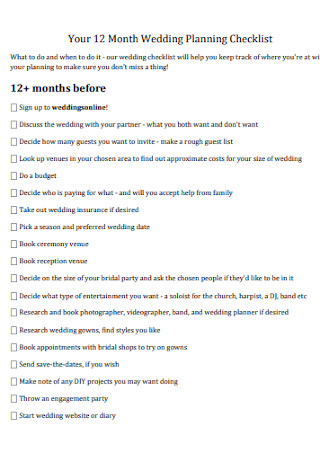
12 Months Wedding Planning Checklist
download now -
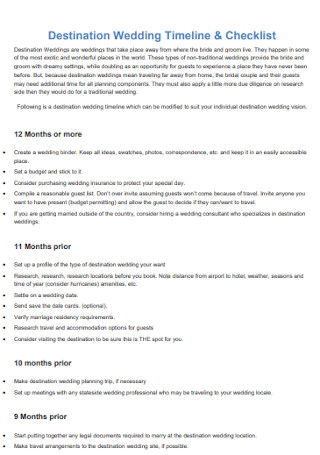
Destination Wedding Checklist
download now -
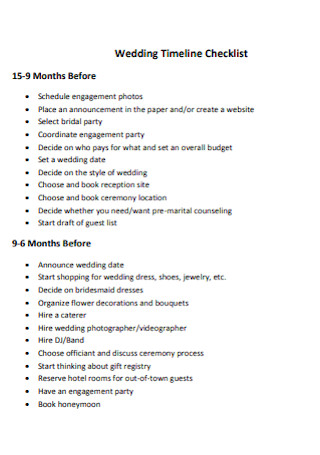
Wedding Timeline Checklist
download now -
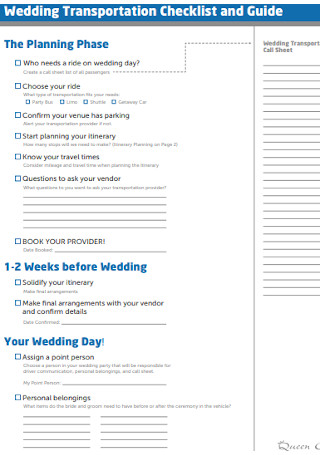
Wedding Transportation Checklist
download now -
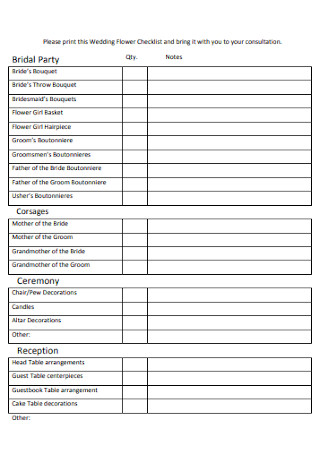
Wedding Flower Checklist
download now -
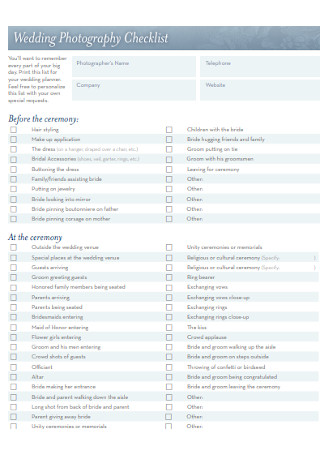
Wedding Photography Checklist
download now -
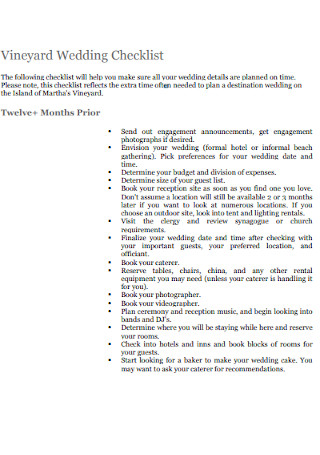
Vineyard Wedding Checklist
download now -
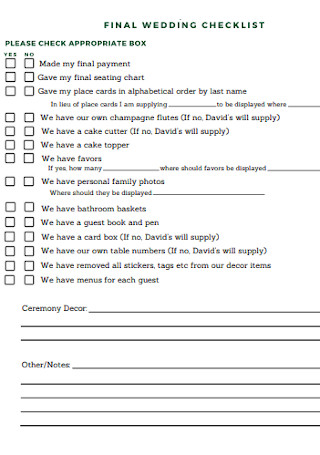
Final Wedding Checklist
download now -
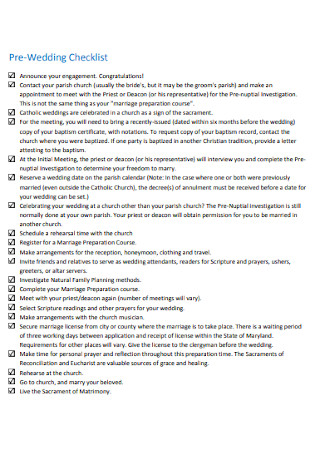
Pre Wedding Checklist Example
download now
FREE Wedding Checklist s to Download
36+ Sample Wedding Checklist Templates
What Is a Wedding Checklist?
Dos and Don’ts of Wedding Preparations
Why Event Checklists Matter
Tips on How to Develop a Wedding Checklist
FAQs
When should you start the wedding preparations?
How much does it cost to hire a wedding planner?
What is the difference between a wedding planner and a wedding coordinator?
Where do you allocate the biggest portion of your wedding budget?
What Is a Wedding Checklist?
A wedding checklist is a planning tool about the said event that comprises of all the tasks and activities needed to perform right from the start of the wedding preparations months or a year prior to the ceremony down to their march towards the honeymoon. It helps the couple or the wedding organizers know which steps to take all along the way to ensure that every detail is taken care of.
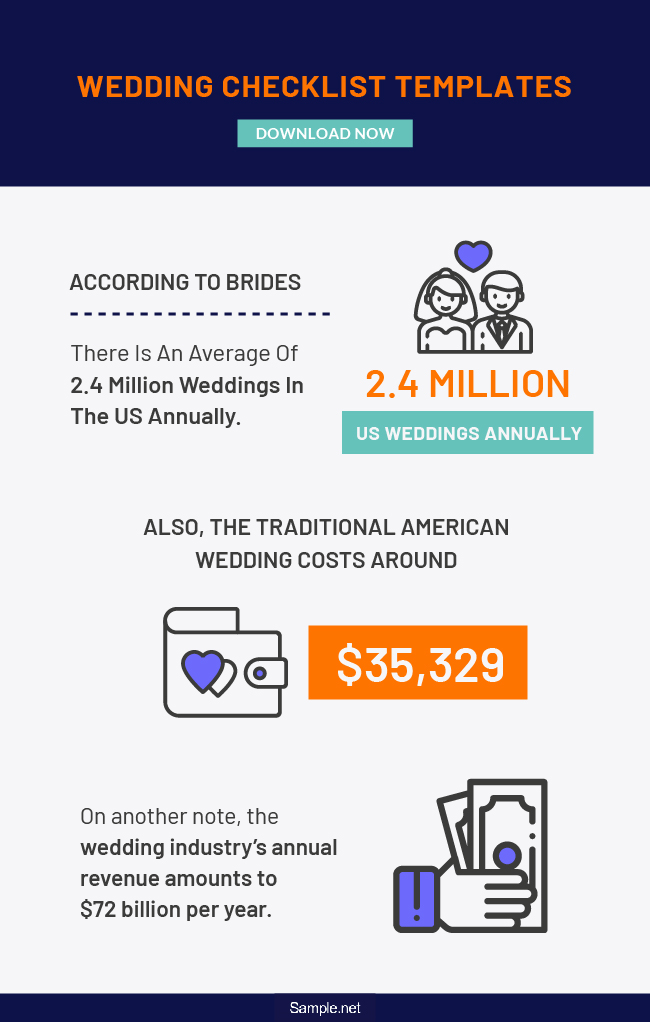
According to Brides, there is an average of 2.4 million weddings in the US annually.
The traditional American wedding costs around $35,329.
The wedding industry’s annual revenue amounts to $72 billion per year.
Dos and Don’ts of Wedding Preparations
When you think of a wedding, your mind might drift to Prince William and Kate Middleton’s $32 million perfect royal wedding. You might be dead set on replicating not the over-the-top price but how everything went smoothly. Perfect may seem overrated, but it helps to avoid circumstances that might cause errors on your big day and hinder you from enjoying every part of it. Here are some of the things that you must remember when preparing for the best day of your life:
Dos
1. Do keep your ceremony to your reception. The distance between your reception and your ceremony does matter when hunting for the perfect location. Even when you’ve found the perfect reception place to hold your after-ceremony program, don’t hesitate to reconsider when it’s not a convenient distance. Remember to factor in the possible traffic or your guest’s mode of transportation.
2. Do have the same ceremony and reception location. If you can, why not? You can forget about the reminder above and have the luxury to slow down a bit after the ceremony and not worry about guests not finding the next location. You will save a ton on rent and transportation when you have a 2-in-1 venue.
3. Do include something creative, personal, or traditional. Most wedding ceremonies and reception are identical, even their stationeries and invitations. What makes a common event special is its hosts’ unique touch of creativity or tradition. You will remember your wedding best if you’ve incorporated something that’s significantly yours.
4. Do have a back-up plan. Always. It is imperative and predictable, but it’s highly important to reiterate that you should organize a back-up plan in case your original layout doesn’t work out. It helps you continue with the day’s activities knowing that you have a contingency plan in store for sudden changes and emergencies.
Don’ts
1. Don’t overcomplicate your program. There’s nothing wrong with wishing to have an extraordinary program during your reception. After all, it’s your day! You might get worried about your wedding speech outline or the things that need to be present. Avoid stressing on the details and stick to the basic flow.
2. Don’t worry about your guest’s schedules too much. As much as you want to invite everyone on your attendance list, their personal schedule might not allow it. Check on your family and the processional participant’s availability. If it’s not within their favor, accept that all you can do is apologize and hope that they’ll show up anyway.
3. Don’t insist on a crowded gathering when you have limited space. If you’re only able to get a small to a medium-sized venue for your ceremony and reception, you might as well rethink the number of people you have in your guest list. It’s good to have fewer people and provide a comfortable seating space.
4. Don’t try to do everything all by yourself. Even when you intend on a DIY wedding and plans to prepare everything by yourself, employ the help of your family and friends, especially on the wedding day. You won’t want to stress about the wedding details while taking care of personal preparations.
Why Event Checklists Matter
If you’ve been contemplating whether to use an event checklist, this is your sign: you should. Compared to other event planning tools, it’s fairly uncomplicated, easy to create, and even easier to modify for incoming changes. Aside from those, here are other reasons why:
Tips on How to Develop a Wedding Checklist
Event planning and management demand you to have attention to details and to deal with numerous tasks while coordinating with other team players to bring the elements of the occasion together. It helps when you have a reliable tool to aid you in overseeing the tasks at hand. A wedding checklist can be just the right thing you need. Here are some steps on how to make one:
1. Know Your Wedding’s Comprehensive Details
Before you go down to the tiniest details of your wedding, start by figuring out the basic details. It is part of the initial stages of your wedding plan where you figure out the kind of event that you want, the number of your visitors, venue description, and the event’s overall theme. It is where you’ll clarify your vision and establish your goal plan’s objectives, so you can have an idea on how to detail the event’s plan. It is how you’ll be able to supply further information on the different aspects of your wedding preparation because you already have the basis for the different specifications.
2. Consider Your Budget
Your wedding’s budget has a significant impact on how the planning’s outcome will look like. As much as you want to splurge on your life’s event highlight and make great memories, it’s unwise to let the planning continue without accounting for your expenses. Set a budget early on the planning stage. Include plan details that will maximize your budget’s capacity. Prioritize major allocations such as venue rent, catering, bride and groom essentials, and other important items. On the other hand, if you’re on a tight budget, you can settle for an alternative with a lesser cost for items such as venue decorations or limiting beverage choices.
3. Identify the Tasks Involved
Once you have your wedding’s complete information and the details on the wedding budget plan’s expense sheet, it’s now easier to identify the tasks that will serve as your checklists line up of items. Out of your wedding’s basic details and your budget’s items, identify what you need to get done first. Divide your checklist into three categories: the before, during, and after. Fill in the details within each division so it’s easy to sort out the different activities and when they’ll take place. These are the tasks that you will track on your document as you move along the planning process.
4. Establish Your Timeline
Your timeline will help you decide when you’ll get to do certain parts of your checklist, as well as the pace of the process. It also has a huge contribution to how your wedding will look like. If you’re planning on a huge and extravagant celebration, see to it that you’ve started a year ahead of the target date. You won’t want to rush your wedding details when you have a lot of inclusions. On the other hand, if you’re only inviting a few guests on a simple ceremony with a short reception gathering after, a few months with preparation should suffice. When you have the timeline, you’ll be able to assign the different tasks of your checklist on different schedules, making it easier for you to identify the deadlines.
FAQs
When should you start the wedding preparations?
It’s best to start your wedding preparations a year before your target date, so you can take your time looking over the details of the plan.
How much does it cost to hire a wedding planner?
A wedding planner costs around $1,800 on average. The range can run from $700 with minimal assistance to $4,000 for costly planners.
What is the difference between a wedding planner and a wedding coordinator?
A wedding planner gets involved at the very start of the planning process by helping find the venue, vendors, and providing referrals and suggestions. On the other hand, a wedding coordinator helps you manage your logistics a month before your wedding. They contact vendors, confirm deliveries, make payments, and get everything ready for the wedding day.
Where do you allocate the biggest portion of your wedding budget?
According to Brides, 40% of your budget should go to your venue and catering. It’s followed by photography (15%), music (10%), flower (10%), and decor (10%).
A wedding management plan isn’t as easy to execute the same that it isn’t easy to figure out the details of how you want the event pan out. There too many factors to consider. Aside from the details of what’s going to be there, you also need to account for what you never want to be there: the unfavorable circumstances. A wedding checklist helps the event organizers and coordinators figure out how to organize the plan well and ensure that the occasion lives up to everyone’s dream and more.
